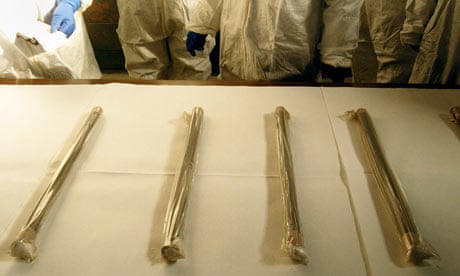North Korea today claimed to have completed reprocessing spent fuel rods at its Yongbyon nuclear plant to extract weapons-grade plutonium.
"We have finished reprocessing 8,000 spent fuel rods as of August. We have made substantial achievements in weaponising plutonium from the extraction," Pyongyang's official Korean Central News Agency said.
Experts said North Korea might be able to produce enough material for one more atomic weapon from the fuel rods cooling at the Soviet-era plant, which was being taken apart under a disarmament-for-aid deal. The announcement is seen as a fresh attempt to put pressure on the US for direct talks.
North Korea's foreign ministry said yesterday the country would "go its own way" unless the US agreed to its longstanding goal of bilateral talks.
Analysts say despite a recent thaw in its relations with the outside world, the latest move served to underline North Korea's threat to stay away from six-party talks on its nuclear programme, and to carry out more tests of long-range missiles, as well as nuclear devices, despite sanctions imposed after the last nuclear test on 25 May.
Earlier this month, Pyongyang expressed willingness to return to the six-party nuclear disarmament talks which it quit in April, on condition it first makes progress in a bilateral meeting with the US.
North Korea's latest announcement came amid speculation that the US special envoy to Korea, Stephen Bosworth, might go to Pyongyang late this month or next month for talks to persuade North Korea to return to the six-party forum that brings together the two Koreas, Japan, China, Russia and the US.
Ri Gun, the second highest-ranking North Korean nuclear negotiator, and Sung Kim, the US nuclear negotiator, held inconclusive talks last month.
After months of sabre-rattling, North Korea has sent more ambivalent signals since August. It has made peace overtures to Seoul and Washington, but it also test-fired short-range missiles and warned South Korea of a potential naval clash on their disputed border.
US and South Korean officials believe that North Korea will eventually come back to the negotiating table because of its weak economy and heavy dependence on international food aid. South Korean officials said the US and South Korea were developing "contingency plans" in case of the "collapse" of the North Korean regime.
South Korea has dangled the prospect of aid to the North in the form of 10,000 tonnes of corn – the first offer of aid since the election of Lee Myung-Bak as South Korea's president, nearly two years ago. North Korea, accustomed to receiving several hundred thousand tonnes of food a year from the South for nearly a decade before Lee took office, has not responded.
